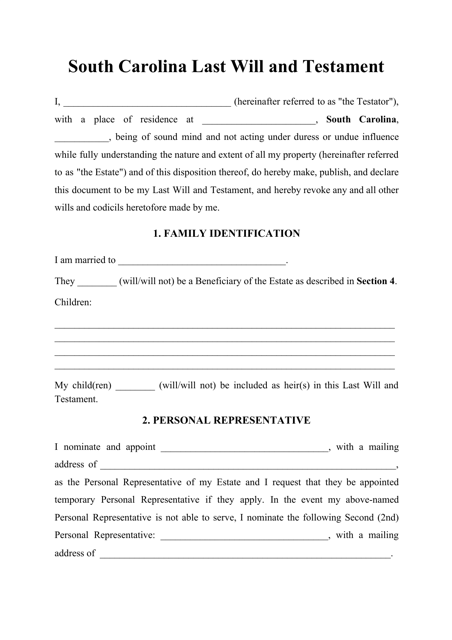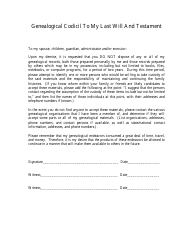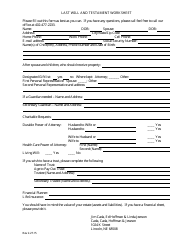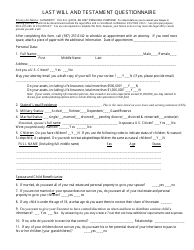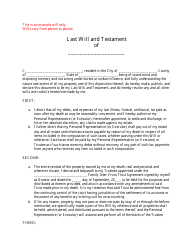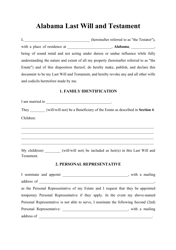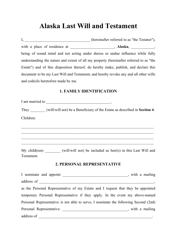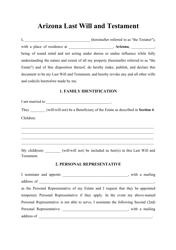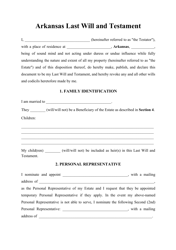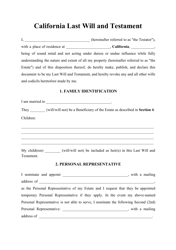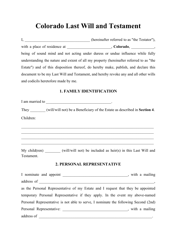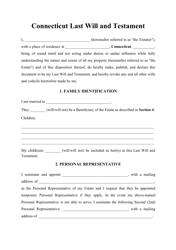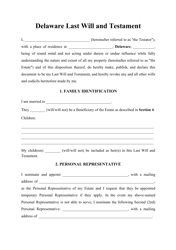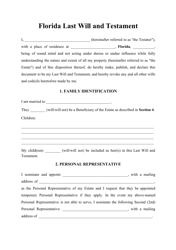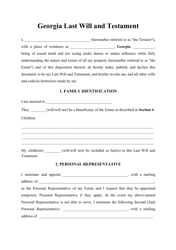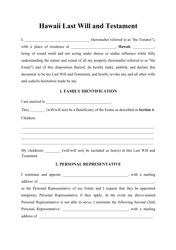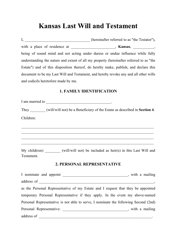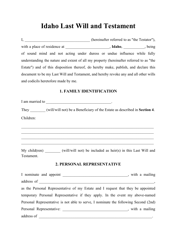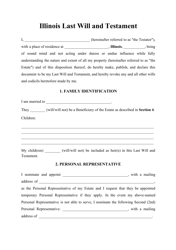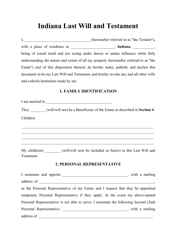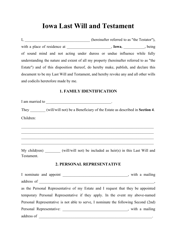Last Will and Testament Template - South Carolina
A South Carolina Last Will and Testament is a legal form used for the purposes of distributing an individual's property upon their death to the selected beneficiaries. The Last Will has several main purposes and allows the individual making the will - otherwise known as the Testator - to do the following:
- Decide who gets their property;
- Decide who will manage their estate;
- Decide who will take care of any minor children, dependents or pets;
- Minimize probate and estate taxes;
- Avoid a lengthy probate process;
- Make gifts and donations;
- Set up a family trust.
The South Carolina Last Will is defined by Section 62-1-201(52) and regulated by Title 62 (South Carolina Probate Code) . The law articulates that the document must be signed by the Testator and two witnesses. Click on this link to download a ready-made template or create your own document with our online form builder.
What Is a Last Will and Testament in South Carolina?
A Last Will and Testament is a legally binding document created in order to enforce the Testator's wishes on how their estate should be distributed upon their death. The document addresses the distribution of personal property, real estate, and assets to individuals - like family or friends - and organizations - like charities or businesses.
The completed form must be thoroughly reviewed to make sure that all wishes are accurately reflected. The finished document must be signed and dated by the Testator in front of witnesses and certified by a notary. Testators must research the laws in their states or contact an attorney to revoke or change an existing will.
A final will and testament may be distributed among the beneficiaries by a chosen representative or executor at the wishes of the Testator.
How to Write a Will and Testament in South Carolina?
Testators are free to decide on the contents of their will. In South Carolina a Last Will and Testament template will cover the following topics:
- Executor. An executor is an elected lawyer or accountant tasked with carrying out the Testator's wishes concerning their estate. If the Testator decides to hire a professional Executor, they'll need to set aside funds for their payments.
- Assets. A Testator's assets may include anything from their real estate, pensions and bank accounts to vehicles, valuables, artwork and family heirlooms. Any of these assets can be left to a person or organization if specified in the will.
- Beneficiaries. The Testator's Last Will needs to contain information about the beneficiaries that will receive an inheritance after the Testator's death. Any individual or organization can be a beneficiary. Spouses, children, relatives, close friends or organizations such as your church or professional club can all receive the Testator's property and possessions if listed in their will.
- Debts. The appointed Executor will be in charge of settling the Testator's debt after their death. Any assets and property will go towards covering the cost of probate and funeral expenses, debts and mortgages before being split between the appointed beneficiaries.
